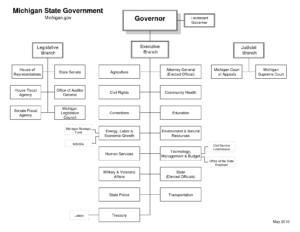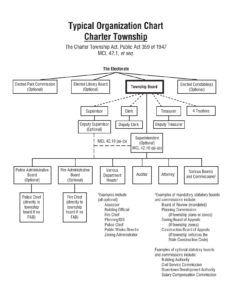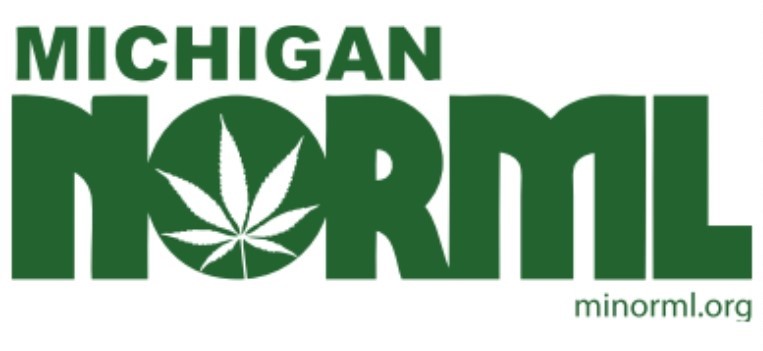
Tools and links for people who would like to run for elected office.
Michigan has two United States Senators and fourteen United States Congresspeople. Our State Senate has 38 members, and our House of Representatives has 110 members. Please review this webpage that explains the structure of Michigan’s government.
You must first decide which office you intend to run for. Please visit our Become A Candidate page for descriptions of each office.
Candidates running for the United States Congress or Senate must file with the Federal Election Commission, and candidates seeking an office in Michigan must file with the Michigan Secretary of State.
RUNNING FOR ANY MICHIGAN OFFICE
Michigan is largely divided in the same way as many other U.S. states, but is distinct in its usage of charter townships. Michigan ranks 13th among the fifty states in terms of the number of local governmental entities.
The state is divided into 83 counties, and further divided into 1,240 townships, 276 cities, and 257 villages. Additionally, the state consists of 553 school districts, 57 intermediate school districts, 14 planning and development regions, and over 300 special districts and authorities.
STATEWIDE OFFICES
The four primary statewide offices in Michigan are Governor, Attorney General, Secretary of State and Supreme Court Justice. Other statewide positions include the State School Board and several university board and trustee positions. Senators, Congresspeople and Appeals Court, District, Circuit and Probate Judges serve regional geographical regions called Districts. The Michigan Secretary of State maintains the 2018 Candidate Listing webpage with a complete list of every candidate that has filed to run for any of these offices. All other candidates run for local municipal positions.
The State of Michigan Secretary of State’s webpage for CANDIDATE INFORMATION is your main source for accurate information about becoming a candidate in Michigan. Here you will find all the candidate requirements and information about filing for a specific office, dates and deadlines and campaign finance information. Make sure you visit this page, Getting Started as a Candidate Committee! It has all the information you need to start your campaign off on the right foot!
BALLOTPEDIA also has this informative page, Ballot access requirements for political candidates in Michigan that describes the steps that prospective candidates for state-level and congressional office must take in order to run for office in Michigan. It provides information about qualifying for the ballot and selecting your party affiliation.
LOCAL OFFICES
It’s important to understand the structure and function of local governmental operations. The Michigan State University Extension created this helpful guide to understanding the structure and function of county governance. There are four parts to this guide. Make sure you read all four parts!
This Wikipedia page also provides a good explanation of the Administrative Divisions of Michigan. This page delineates each governmental unit and the elected officials who manage those governmental units.
The Michigan Townships Association explains the role of local government, and their website is filled with resources for local candidates! Start here or explore topics like Township Structure, Township Laws and Running For Office. This is must read material for perspective candidates! They even offer Township Governance Academy training and other informative materials in their Learning Library!
The Michigan Municipal League also provides a wealth of resources for local candidates.
foygfo

